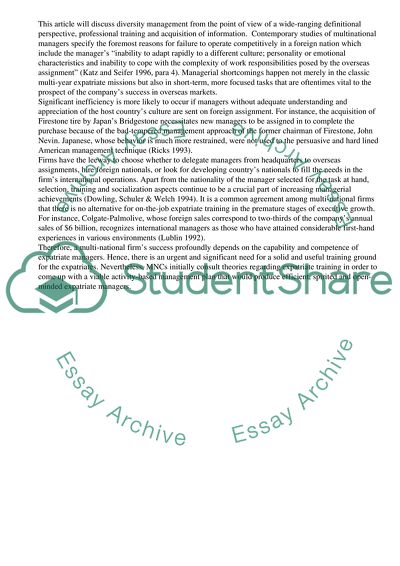Cite this document
(“The Importance of Training Programs for Expatriates Research Paper - 1”, n.d.)
The Importance of Training Programs for Expatriates Research Paper - 1. Retrieved from https://studentshare.org/management/1747926-managing-across-culture
The Importance of Training Programs for Expatriates Research Paper - 1. Retrieved from https://studentshare.org/management/1747926-managing-across-culture
(The Importance of Training Programs for Expatriates Research Paper - 1)
The Importance of Training Programs for Expatriates Research Paper - 1. https://studentshare.org/management/1747926-managing-across-culture.
The Importance of Training Programs for Expatriates Research Paper - 1. https://studentshare.org/management/1747926-managing-across-culture.
“The Importance of Training Programs for Expatriates Research Paper - 1”, n.d. https://studentshare.org/management/1747926-managing-across-culture.


